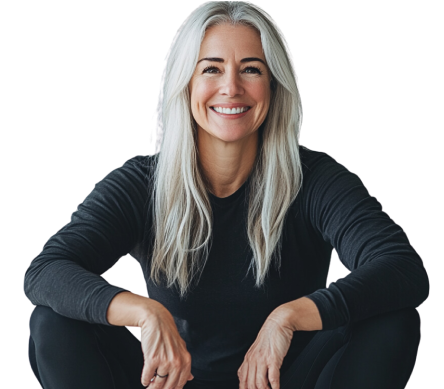Explore by category
Three easy steps
How It Works Section
How It Works
Questionnaire
Create an account, provide your medical history, and get started on your journey to better health.
Medical Review
A medical provider reviews your health history to prescribe the best solution. A phone call may be required.
Pharmacy Fulfillment
Receive your medication at home within 7 – 10 business days.
Complete Health Questionnaire
You have already taken the first step to improving your health, and we appreciate you visiting our site. Please browse our products to learn more about the treatments available to you.
To check out, you will need to:
- Create a profile with your name, contact information, and address.
- Complete a short health questionnaire.
- Select a payment option and complete your payment.
If your medical provider does not prescribe the product you selected, your payment will be refunded.

Step 1
Questionnaire
Step 2
Medical Review
Step 3
Pharmacy Fulfillment
Complete Health Questionnaire
You have already taken the first step to improving your health, and we appreciate you visiting our site. Please browse our products to learn more about the treatments available to you.
To check out, you will need to:
- Create a profile with your name, contact information, and address.
- Complete a short health questionnaire.
- Select a payment option and complete your payment.
If your medical provider does not prescribe the product you selected, your payment will be refunded.

THE ELLIE DIFFERENCE
We envision a world where every voice matters.
We aim to add quality years to people’s lives by connecting them to medical providers and pharmacies at prices that are more affordable and accessible.


Empower & Inspire
Real Science. Real Results.
What they say
Testimonials
Quality
Comes First
MEDICAL PROVIDERS
Board-certified physicians and medical providers are available to answer your questions.
PRODUCTS
Our products adhere to the highest standards of medical compliance and regulation.
PHARMACIES
We work with 503a pharmacy partners that are top-tier and can scale with our fast-paced growth.
Learn More about our FDA Compliance
*The doctor network may prescribe certain compounded drugs for the treatment of certain conditions, subject to approval by a provider through the Ellie platform; however, even though our partner pharmacies use only FDA-approved ingredients that are pharmaceutical-grade and highly regulated, compounded prescriptions are not FDA approved. The appearance, contents, and dosage of the vial may vary based on your personalized prescription, and individual results may vary.
Educational
Series

Unlock your health with Sermorelin
Dr. Jacquie Leone - Neuropathic DoctorJoin Dr. Leone for a live discussion on how to unlock your health with Sermorelin and optimize your microbiome!
WATCH WEBINAR
Learn about functional nutrition
Lee Anne Dunson - Functional Nutrition & Fat Loss CoachLearn about functional nutrition, how to build lean muscle and achieve your health goals through her expertise!
WATCH WEBINARHELP US EMPOWER OTHERS
Become an Ellie Brand Partner Today
Frequently Asked Questions
Find answers to common questions about EllieMD.
To create an account with EllieMD, please visit https://elliemd.com/register. You will need to provide your name, address, email, and phone number.
If you were referred by a brand partner, ensure you're signing up through their unique link by checking for their name in the top banner or selecting it from the dropdown menu during registration.
To log in to your EllieMD account, visit https://elliemd.com/login/ or click the menu button in the upper right corner of any page on our website.
Then, select the "Login" button and enter your credentials to access your account.
To create an account with EllieMD, you'll need to provide your name, address, email, and phone number.
If you were referred to EllieMD by a brand partner, be sure to sign up using their unique link. You can confirm this by checking for their name in the top banner or selecting their name from the dropdown menu during registration.
To reset your password, visit https://elliemd.com/login/ and click on the "Forgot Password" link.
Follow the instructions to receive a password reset email and create a new password for your account.
No, an account is required to place an order.
Creating an account allows us to provide personalized recommendations, track your orders, and offer a seamless experience tailored to your health needs.
A Brand Partner is an independent contractor who promotes and sells EllieMD products through a unique referral link.
Brand Partners help connect customers with our products and may earn commissions on sales made through their link.
To become a Brand Partner, visit https://elliemd.com/join-us/ and click "Join Us."
Please note that an enrollment fee and a monthly tech maintenance fee are required to participate in the program.
You can easily update your contact information, address, payment method, or any other account details, from your EllieMD account through the Patient Portal.
For any questions or assistance, please visit our Support Portal
Yes, medical providers require that you have had a physical exam and blood test within the past three years before ordering.
Additionally, we recommend consulting your primary care physician to ensure our products are suitable for your health needs.
Yes, but you must disclose any pre-existing medical conditions and complete the medical intake form as accurately and thoroughly as possible. A licensed medical provider will review your information and determine if you are eligible for a prescription.
If you're experiencing difficulty accessing your account and have already attempted to reset your password, please contact us via our Support Portal
You can update your shipping address directly through your EllieMD account in the Patient Portal.
Get the latest updates and exclusive offers by subscribing to our newsletter.
© 2025 EllieMD LLC. All rights reserved.





